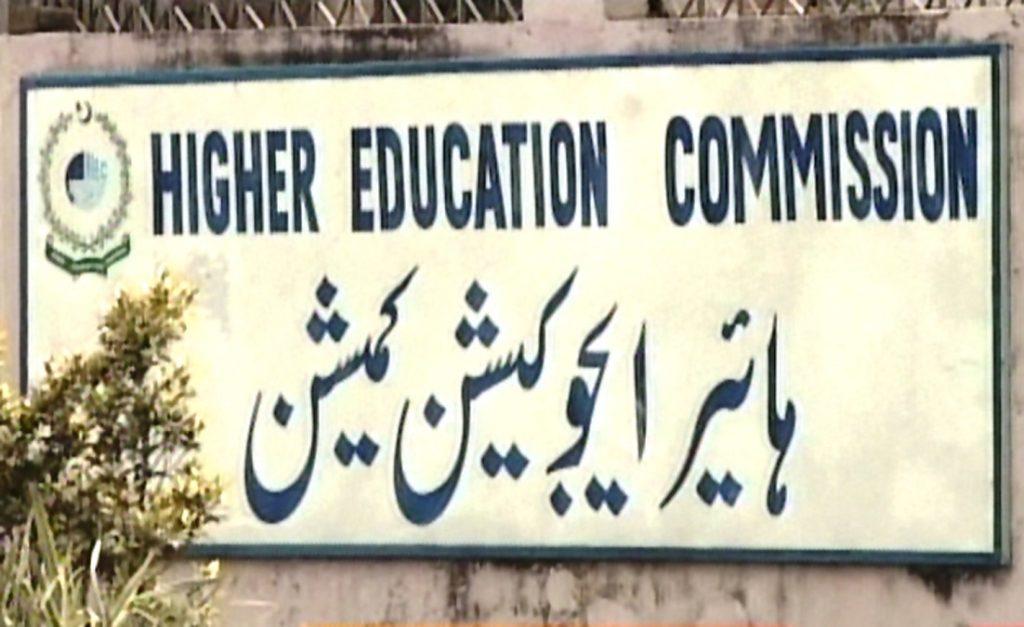Higher education is an essential part of a successful career, and in Pakistan, there is a range of options available to students looking to pursue high education. But the question remains: who pays for higher education in Pakistan?
Government Funding for Higher Education in Pakistan
The government of Pakistan is responsible for providing funding for high education in the country. This funding comes in the form of budgetary allocations made to the High Education Commission (HEC), which is the main body responsible for coordinating and regulating higher education institutions in Pakistan.
Challenges and Considerations in Financing Higher Education
Despite the various funding options available, there are still many challenges and considerations to be addressed. For instance, there is a need for greater transparency in the allocation of funding, as well as a need to address the growing issue of brain drain, whereby talented individuals are leaving the country in search of better educational and career opportunities.
Overall, while the government plays a crucial role in funding high education in Pakistan, there are also private sector contributions, individual self-financing options, and Spoken English Home and Online Tutors services available to support students on their academic journeys. However, there is still much work to be done to ensure that everyone has access to quality higher education.
Public Sector Universities and Funding Allocation
The government of Pakistan allocates funds for high education in the public sector universities of the country. These universities receive funding for research, infrastructure, salaries, and operational costs. The education funding is allocated through the Higher Education Commission (HEC) of Pakistan.
The HEC is responsible for distributing government funding to the universities. It has been instrumental in bringing about major reforms in high education, such as the introduction of new academic programs and research projects.
However, there are still challenges in terms of funding allocation. The funding may not be enough to cover all the needs of the universities, and some institutions may receive less funding than others. This can result in disparities in quality and infrastructure between different universities.
Moreover, universities also rely on other sources of funding, such as donations, grants, and partnerships. Private sector companies and individuals also contribute to high education through scholarships and endowments.
If you’re a student in Pakistan looking to finance your high education, there are options available. You can explore scholarship opportunities offered by universities and private organizations. Additionally, you can also avail of the services of the best home & online tutor services or Home Tutors in Islamabad to help you in your academic journey. However, it’s important to consider the cost of education and make informed decisions to avoid excessive debt or financial strain.
Role of Higher Education Commission (HEC) in Financing
In Pakistan, the High Education Commission (HEC) plays a vital role in financing high education. The HEC is responsible for allocating funding to public sector universities based on their performance indicators, such as research output and quality of teaching.
In addition to this, the HEC also provides scholarships to students who are financially disadvantaged and encourages them to pursue higher education. This is a crucial step in making high education accessible to a wider range of students and promoting social mobility.
Apart from funding and scholarships, the HEC has also introduced initiatives to improve the quality of education in Pakistan. For instance, they have introduced accreditation systems to ensure that universities maintain high standards of teaching and research.
Despite these efforts, there are still challenges in financing high education in Pakistan. For example, private sector universities rely heavily on tuition fees, which may be unaffordable for many students. Additionally, some universities lack the resources to provide adequate infrastructure and equipment for students.
However, the HEC has collaborated with various stakeholders to address these issues. They have worked with private sector organizations to establish endowment funds, which provide sustainable financing for universities. The HEC has also encouraged the use of best home & online tutor services to improve student’s learning outcomes.

Private Sector Contributions to Higher Education
Aside from government funding, the private sector also plays a significant role in financing high education in Pakistan. Many private institutions offer degree programs and other courses for students who can afford their tuition fees.
In addition, several private organizations have emerged that focus on providing education and training opportunities to underprivileged students who cannot afford to attend traditional schools. These organizations include charities, NGOs, and corporate social responsibility (CSR) programs. One such example is Home Tutors in Lahore, which provides tutoring and academic support to disadvantaged students in Lahore and its surrounding areas.
These private sector contributions to higher education in Pakistan have helped bridge the gap between students who have the financial resources to pursue high education and those who do not. However, it is worth noting that these contributions are not enough to meet the growing demand for high education in the country. Furthermore, there are concerns about the quality and sustainability of these private institutions and programs.
Overall, private sector contributions to higher education in Pakistan are crucial for the countries overall development and progress. Still, more needs to be done to ensure that every student has access to high-quality education, regardless of their socio-economic status.
Individual Contributions and Self-Financing
Apart from government funding and private sector contributions, individuals also contribute to their own high education through self-financing. This is primarily done by taking out student loans, seeking scholarships and grants, or paying for tuition fees out of pocket.
Pakistan has several public and private banks that offer student loan programs, including the National Bank of Pakistan, MCB Bank, and Bank Alfalah. These loans typically cover the cost of tuition fees and can also provide a living allowance to cover expenses like accommodation and transportation. However, these loans need to be paid back with interest, which can be a challenge for many graduates who struggle to find well-paying jobs upon completion of their studies.
Scholarships and grants are another popular option for self-financing in Pakistan. Many organizations, both within Pakistan and abroad, offer scholarships for students who meet certain academic criteria or demonstrate financial need. These can range from full scholarships that cover tuition fees, living expenses, and travel costs to smaller awards that provide a partial subsidy.
Finally, some individuals choose to pay for their high education out of pocket. While this may not be feasible for everyone, those who can do so often prefer this method as it allows them greater flexibility and control over their education. However, it can be difficult to finance one’s own education without taking on significant debt, especially in an economy where unemployment and underemployment are high.
Overall, individual contributions and self-financing play an important role in financing high education in Pakistan. While there are challenges associated with taking out loans or paying for education out of pocket, these methods provide an avenue for those who do not have access to government funding or private sector contributions to still pursue higher education.
Challenges and Considerations in Financing Higher Education
While the government and private sector do provide funding for high education in Pakistan, there are still several challenges and considerations to take into account. One major challenge is the limited funding available for higher education. Pakistan has a low percentage of its budget allocated towards education in general, and high education specifically. This limited funding can make it difficult for universities to provide the resources and facilities necessary for quality education.
Another challenge is the unequal distribution of funding across universities. Public sector universities often receive more funding than private universities, which can lead to a disparity in the quality of education provided. Additionally, the funding allocation for universities can also be influenced by political factors, leading to biased decision-making.
Furthermore, there are challenges related to the distribution of funds to students who need financial assistance. While scholarships and grants are available, they may not always be easily accessible or sufficient in covering the full cost of tuition and other expenses. This can lead to students being unable to afford higher education, especially those from low-income backgrounds.
Finally, the consideration of increasing student loan debt is another issue. Many students may opt for loans to pay for their education, which can lead to a significant amount of debt after graduation. This debt can hinder their ability to find employment and contribute to the economy, ultimately creating a negative cycle of debt and unemployment.
Overall, the financing of higher education in Pakistan remains a complex issue that requires attention and resources from both the government and the private sector. By addressing the challenges and considerations, the country can strive towards a more accessible and equitable system of higher education.











